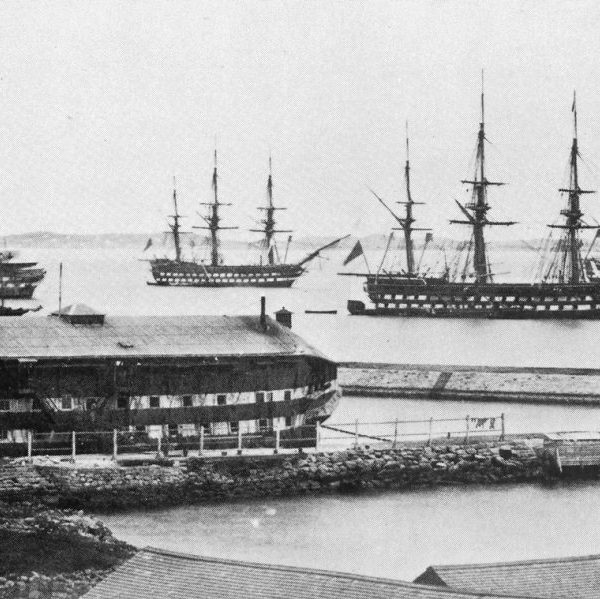Notes from a Native New Yorker: Trading Ideas with the Past
Michelle Stein
Yale Press’s books manage to take the reader all across the world, and look in depth at a great many topics. They also have a great many books that delve into the city of New York, where I was born and have thoroughly explored. I hope to also explore many of the books from Yale Press that tell the stories of many aspects of city life. To start this series, I’ll take a look into 18th-century trade in New York with Thomas M. Truxes’s Defying Empire: Trading with the Enemy in Colonial New York.
This past Thursday, Americans across the United States celebrated Thanksgiving, a meal that reflects one shared by the pilgrims, newcomers to the land, and the Native Americans who already lived on the land. The holiday has become a happy one, marked by eating. Some might note that this day of Thanksgiving Americans celebrate glosses over much of what followed that first meal. Peace in the colonies did not last for long between the colonists and Native Americans, and once colonial America established itself, tensions developed between Britain and the colonies.  1754 marked the start of the French and Indian War, which was a war primarily focused around territorial disputes between Britain and France, and that had a major effect on life in the colonies. Notably, the British were intent on cutting down the French’s supplies, and this was ultimately best accomplished by limiting the trade of the colonies, whose trade was already hampered by British restrictions. Defying Empire takes a close and fascinating look at trade in New York during the French and Indian War.
1754 marked the start of the French and Indian War, which was a war primarily focused around territorial disputes between Britain and France, and that had a major effect on life in the colonies. Notably, the British were intent on cutting down the French’s supplies, and this was ultimately best accomplished by limiting the trade of the colonies, whose trade was already hampered by British restrictions. Defying Empire takes a close and fascinating look at trade in New York during the French and Indian War.
New York City, as a central trading point, was unwilling to give up its trade with the French even as they fought the British. Truxes weaves together a great many characters and events, telling the story of the periods of open channels or blocks on trade between the colonists and the French. Throughout the French-Indian war traders based in New York were able to continue trade with the French through a variety of illegal means, often forging documents and trading under the flags of the Dutch and Spanish. French agents, government officials, businessmen, and informants all appear in this book, working to maintain trade between the American colonists and French, and some who were intent on preventing it.
The many businessmen involved in skirting the law act in line with their business interests, but most importantly demonstrate a frustration with British rule. The Flour Act, passed in 1757, prohibited the export of grain and flour beyond Britain and its colonies, a decision clearly intended to block the French’s access to supplies, but one that was problematic for colonial traders. The act presented the same problems as laws like the Stamp Act, placing undue burdens on colonists who provided Britain with much of the empire’s wealth.
Truxes works to illuminate a piece of history that may not be taught in a regular American History class, but nevertheless, it fits in like a puzzle piece with the traditional story of the lead-up to revolution. Reading Defying Empire is also a great opportunity to return to historical New York, where today Wall Street dominates trade and cruise ships often dominate the piers and ports. Sea trade has changed, though some elements are the same. On Slate, Rose George is writing the story of her time on a container ship, and in her first piece, she explains that many ships still fly with flags from countries not the same as the owners of shipping companies. Ultimately, the book offers the story of a part of history that is less well known and mirrors similar questions of today, as well.
Michelle Stein is a former Yale Press intern and recent Vassar College graduate. She lives on the Upper West Side in New York.

























